As an assistant curator it’s my job to research some of the weird and wonderful things that our curators are interested in. Recently they’ve been looking into some mystery objects found in our stores and I’ve been lending a hand and a brain cell or two.
Mystery objects aren’t quite as X-Files as they sound; instead, they result from an object losing its identity or ending up out of place. If you want to find out more about mystery objects and how we investigate them, then take a look at our associate curator’s blog and have a go yourself. Or stick around and I’ll tell you about one of our favourite finds.
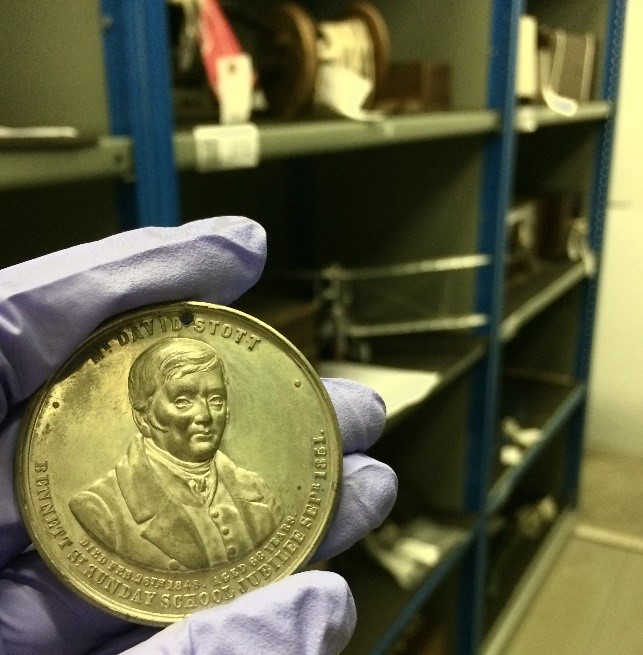
Nothing says treasure hunt like finding a medallion, and this one is quite unusual. It was made for Bennett Street Sunday School, the largest Sunday school in Manchester. On one side it shows the school with its numerous windows, three chimneys and the distinctive chequered brick around the doors. On the other side is David Stott, the school’s founder and the words ‘Bennett Street Sunday School Jubilee September 1851′.
David Stott was an umbrella manufacturer in Manchester, and like many manufacturers he’d seen the impact that industrialisation had had on his town. People crammed into the city in search of jobs.
Areas like Ancoats and New Cross, which sit just east of Manchester’s centre, were some of the most dramatically affected. Workers were crowded together into houses, and as money was scarce their lives were often difficult and uncertain. To earn as much as they could whole families went to work in the new factories. Men, women and children all worked long hours fuelling the industrial revolution.

These days, children spend five days a week in school, but the children of Ancoats and New Cross spent six days in the factories. Sunday was a day of rest, but this left them no opportunity to learn basic skills like reading and writing. This changed with the Sunday School Movement. From the late 18th century onwards, businessmen and philanthropists began to open and fund Sunday schools up and down the country to help educate their town’s poorest children.
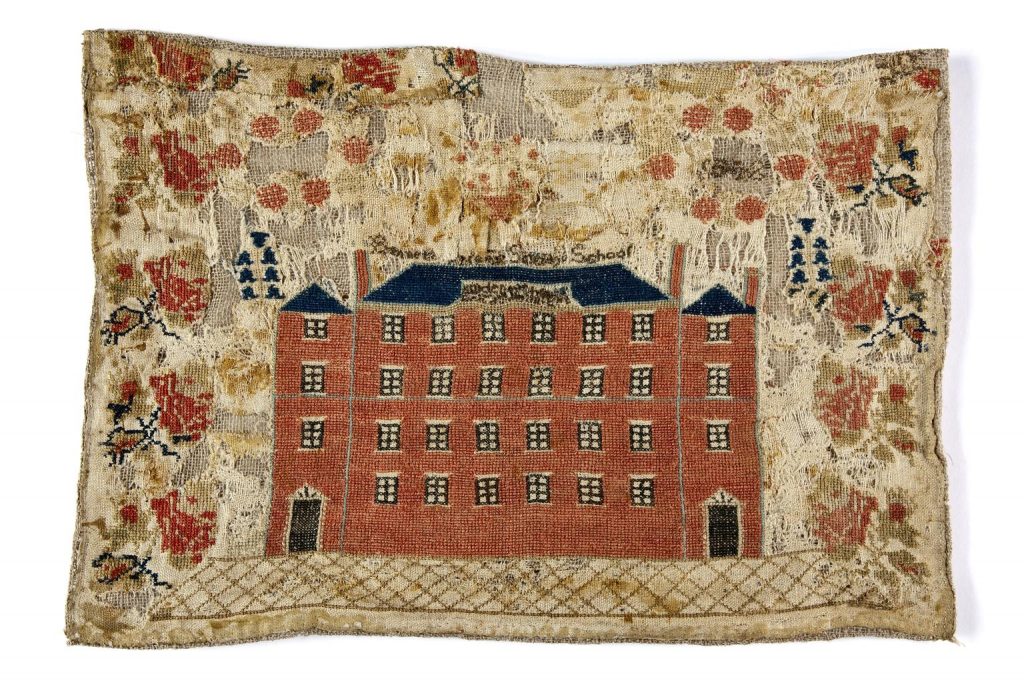
© The Board of Trustees of the Science Museum
David Stott opened Bennett Street Sunday School in 1801 to teach the children of Ancoats and New Cross. Pupils got education, food and trips out of Manchester. The school proved popular and by 1850, just before its jubilee, it had over 2,600 pupils on its books. The jubilee was a chance to celebrate the school and its founder who had died just a few years before. Jugs, mugs and medallions were all made especially for the celebration.
I’m happy to announce that this medallion has officially become part of the museum’s collection, and is one of our first acquisitions of the year. Alongside our Bennett Street jug and needlework sampler, this will help us to tell the story of Manchester’s largest Sunday school and celebrate the impact that charitable institutions like Bennett Street had on the poorest people in industrial Manchester.
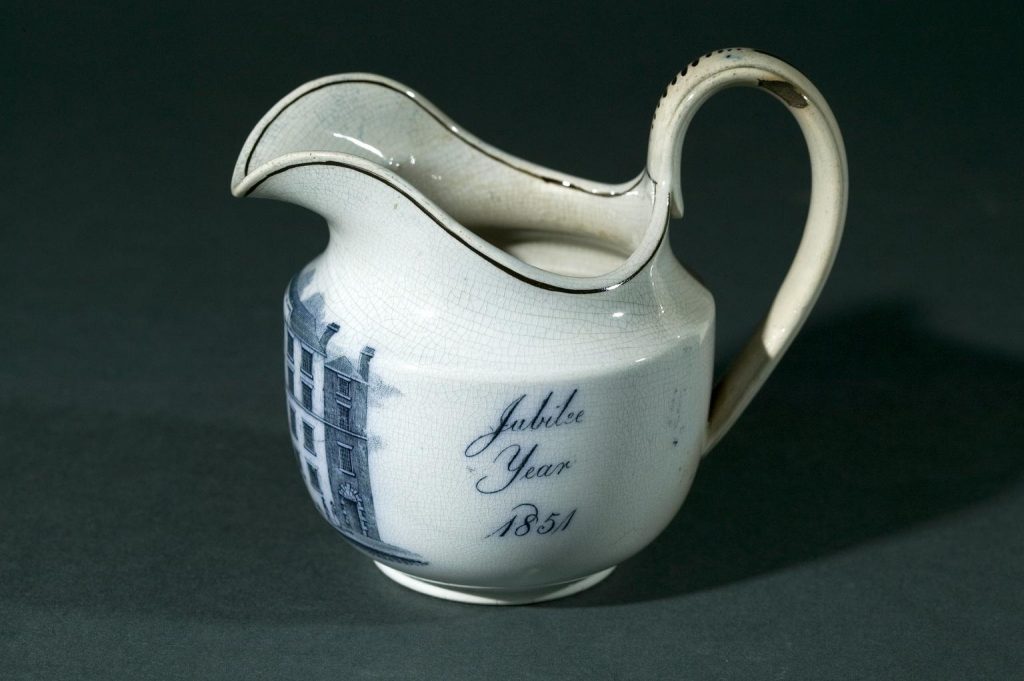
© The Board of Trustees of the Science Museum
Caught your interest? Find out more in our online collection. Or take a look at Manchester Archives collection or their partner Greater Manchester Lives, they have loads of wonderful Bennett Street related material.
3 comments on “Found in the store: The Bennett Street Sunday School medallion”
Comments are closed.
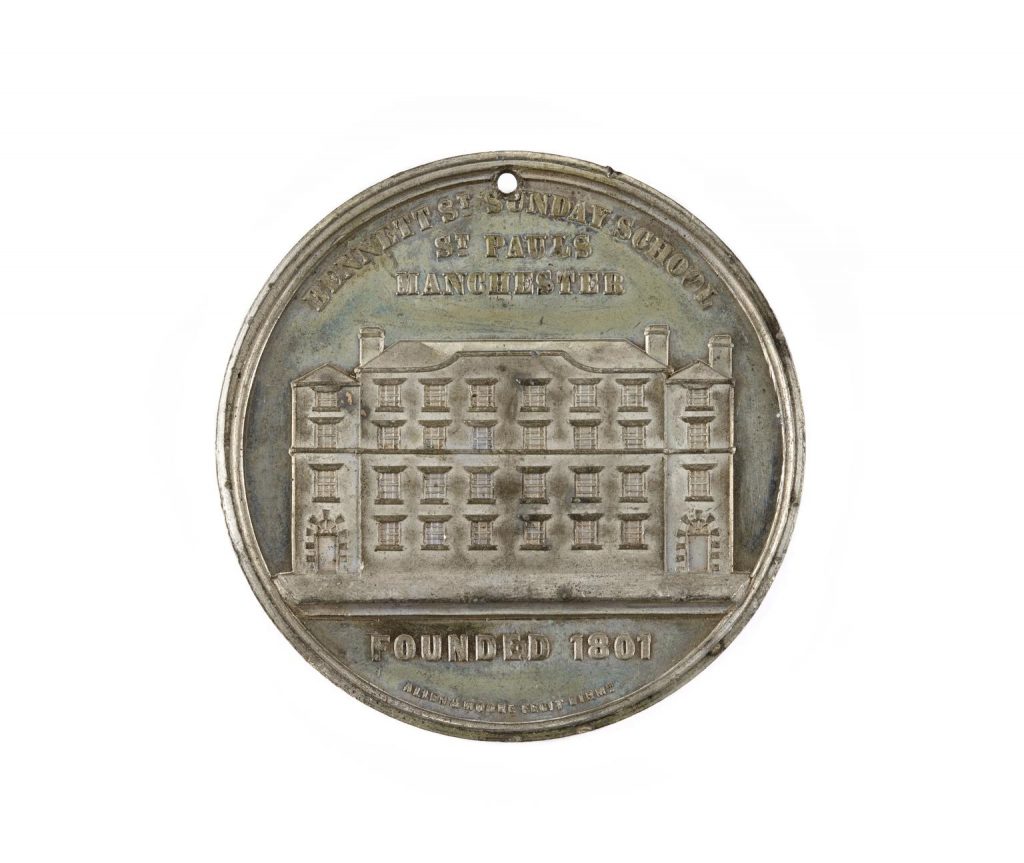
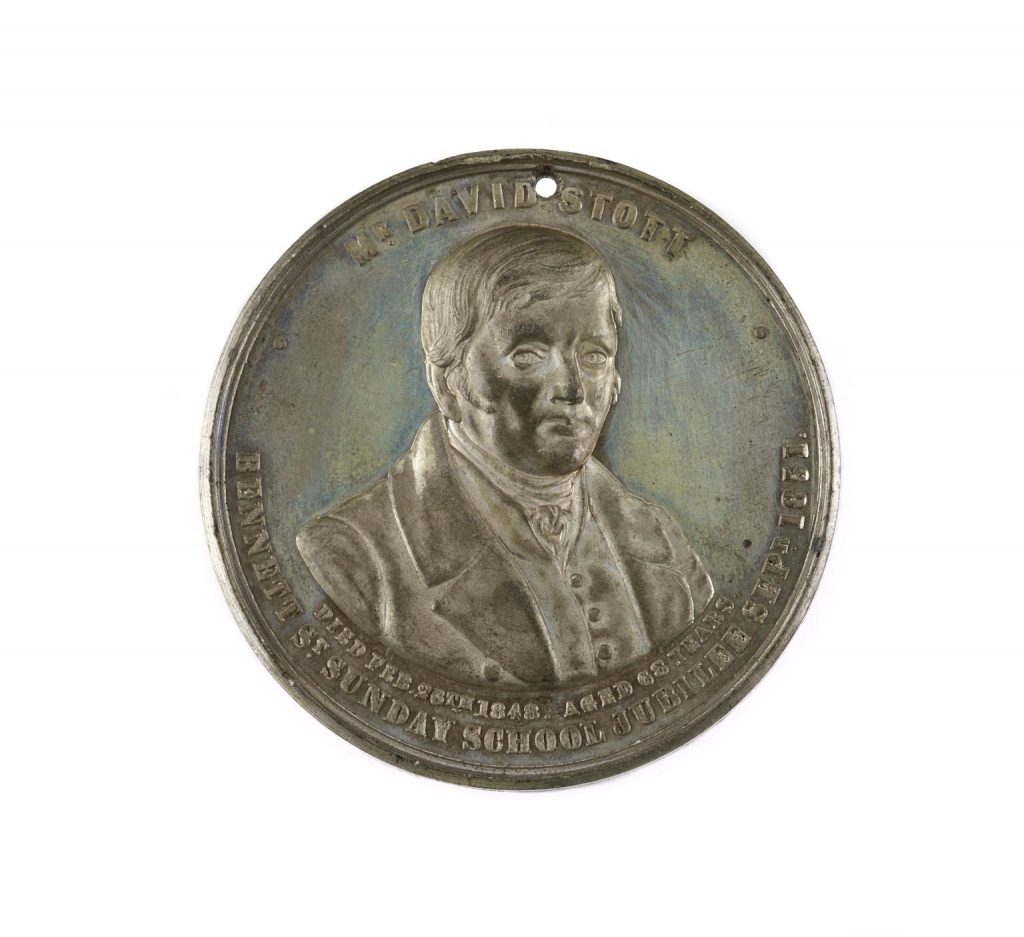
Very interesting i have been collecting information on my ancestors they also are umbrella makers but presumably not as important as David Stott they also are Mancunians. I would be grateful for any info you have on David and his family.
I believe he ended up in prison whilst mine only had to pay a fine for employing an underage worker.
I have a large collection of books given to my ancestor’s Jane Holt and Thomas Evans, who were teachers at the school. The slip in the font of them states that they were presented to them by the visitors of Bennett Street School. One dates back to Christmas 1833.
I believe this is my ancestor as I descend from Eli Stott, who I think may have been a son of David’s. They were all umbrella makers until the family business Thomas Stott & Sons went bankrupt in the 1870s.